Japanese tattoos have been a symbol of beauty, culture, and rich tradition for centuries. Their intricate designs, vivid colors, and deep meanings make them one of the most sought-after styles in tattoo art today.
From koi fish to samurai warriors, every design carries a story and a unique meaning that transcends time. If you’re looking to get inked with a meaningful and visually striking tattoo, traditional Japanese tattoos should definitely be on your list.
In this blog post, I’m going to share 20 stunning traditional Japanese tattoo ideas that will surely inspire your next tattoo decision.
Koi Fish Swimming Upstream
The koi fish is one of the most iconic symbols in traditional Japanese tattoos. In Japanese culture, a koi fish swimming upstream represents perseverance, strength, and the ability to overcome obstacles. It’s believed that if a koi fish reaches the top of a waterfall, it transforms into a dragon.
Meaning: Overcoming challenges, personal growth.
Placement: Back, sleeve, or side.
Why I Love It: I adore how this tattoo represents resilience. It’s a great reminder to never give up, no matter how tough life gets.


Dragon and Tiger Battle
In Japanese tattoos, the dragon and tiger often symbolize opposing forces. The dragon represents wisdom and strength, while the tiger represents courage and boldness. A battle between the two is a powerful depiction of balance and duality.
Meaning: Strength, courage, balance between opposing forces.
Placement: Full back, arm sleeve.
Why I Love It: The dynamic energy of this tattoo is just mesmerizing. The detailed contrast between the tiger and dragon creates such an intense visual impact.

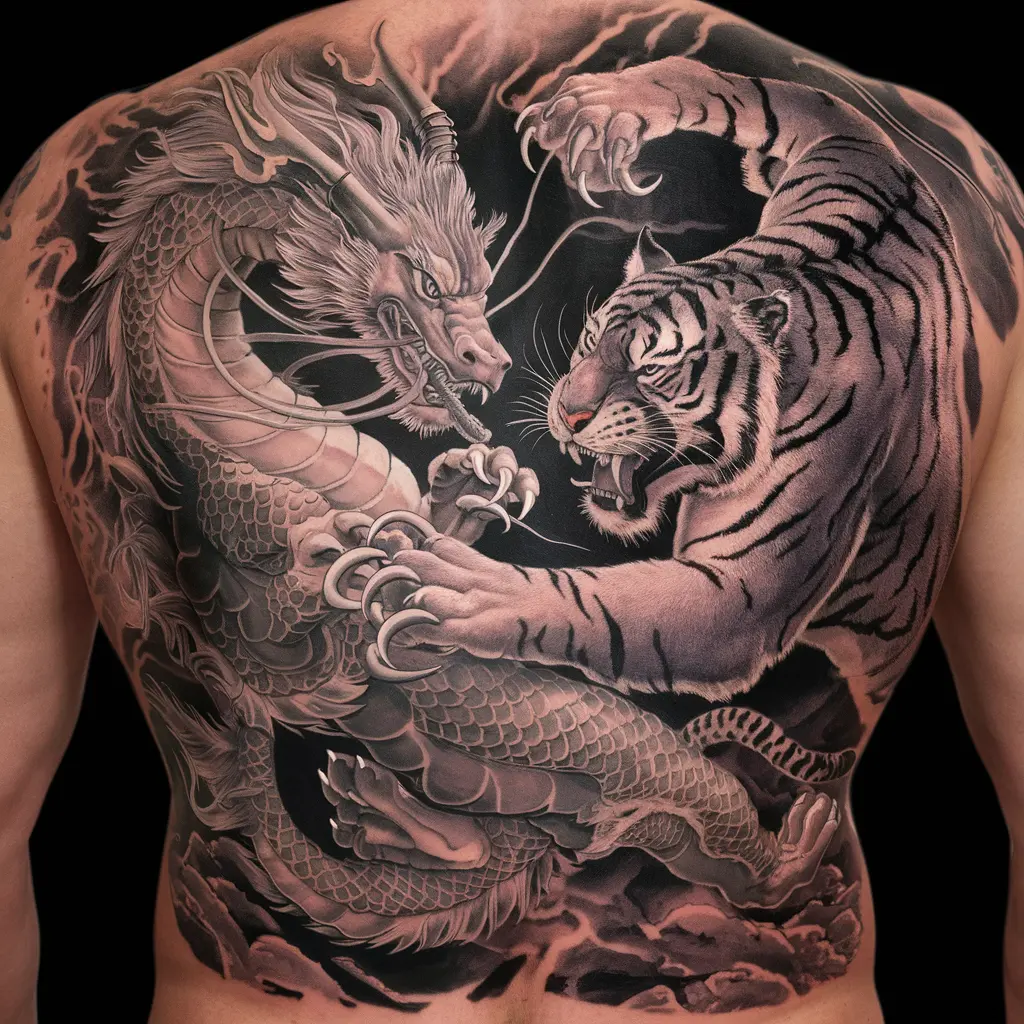
Peony Flower and Snake
Peonies are often associated with beauty, wealth, and good fortune, while snakes symbolize protection and transformation. Together, they form a balanced tattoo design that represents the combination of beauty and power.
Meaning: Transformation, protection, beauty.
Placement: Thigh, upper arm, side.
Why I Love It: This tattoo’s combination of delicate flowers and fierce snakes speaks to the inner strength hidden beneath the surface. It’s a reminder that beauty and strength often coexist.

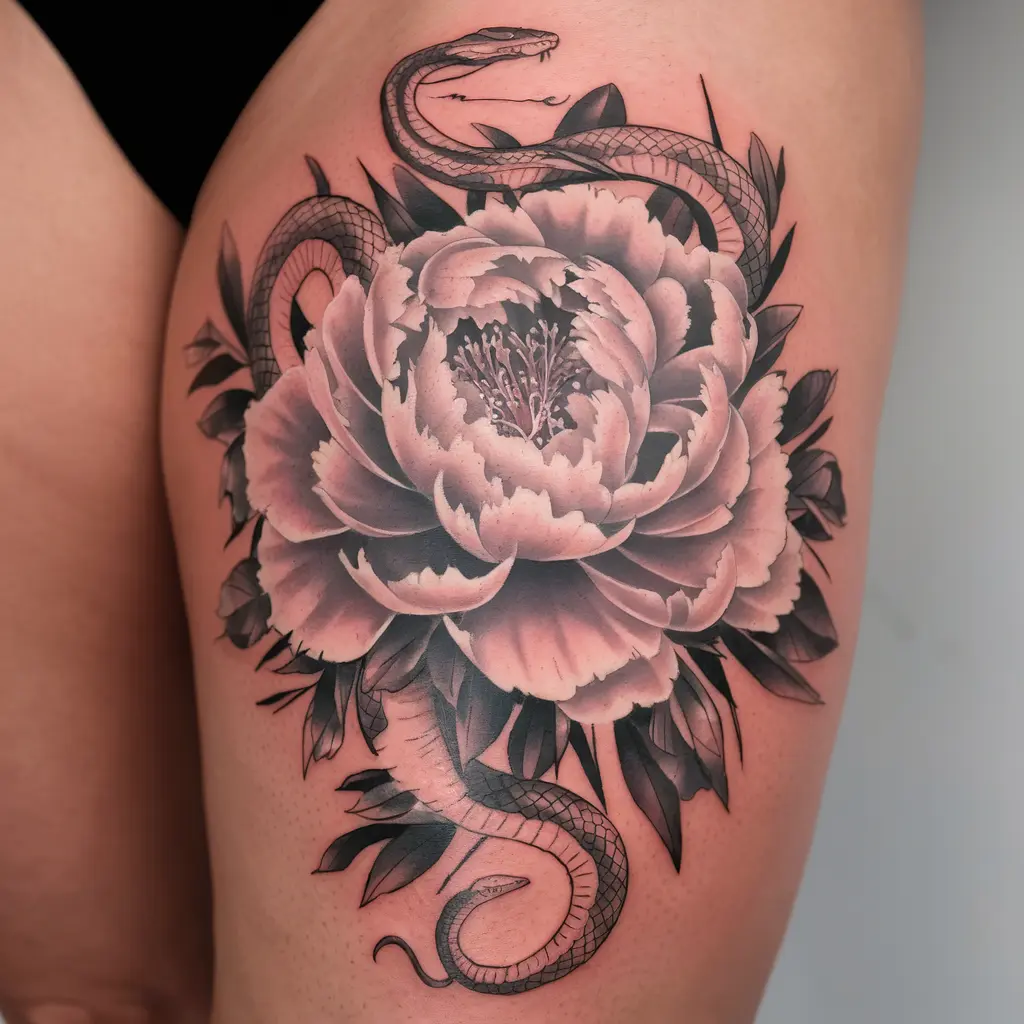
Phoenix Rising from Ashes
The phoenix is a symbol of rebirth, immortality, and rising from the ashes after a difficult period. This tattoo is a powerful representation of overcoming adversity and emerging stronger than before.
Meaning: Rebirth, resilience, immortality.
Placement: Full back, chest, side.
Why I Love It: The idea of rebirth resonates deeply with me. It’s a tattoo that reminds me that no matter how hard life gets, there’s always a chance to start anew.
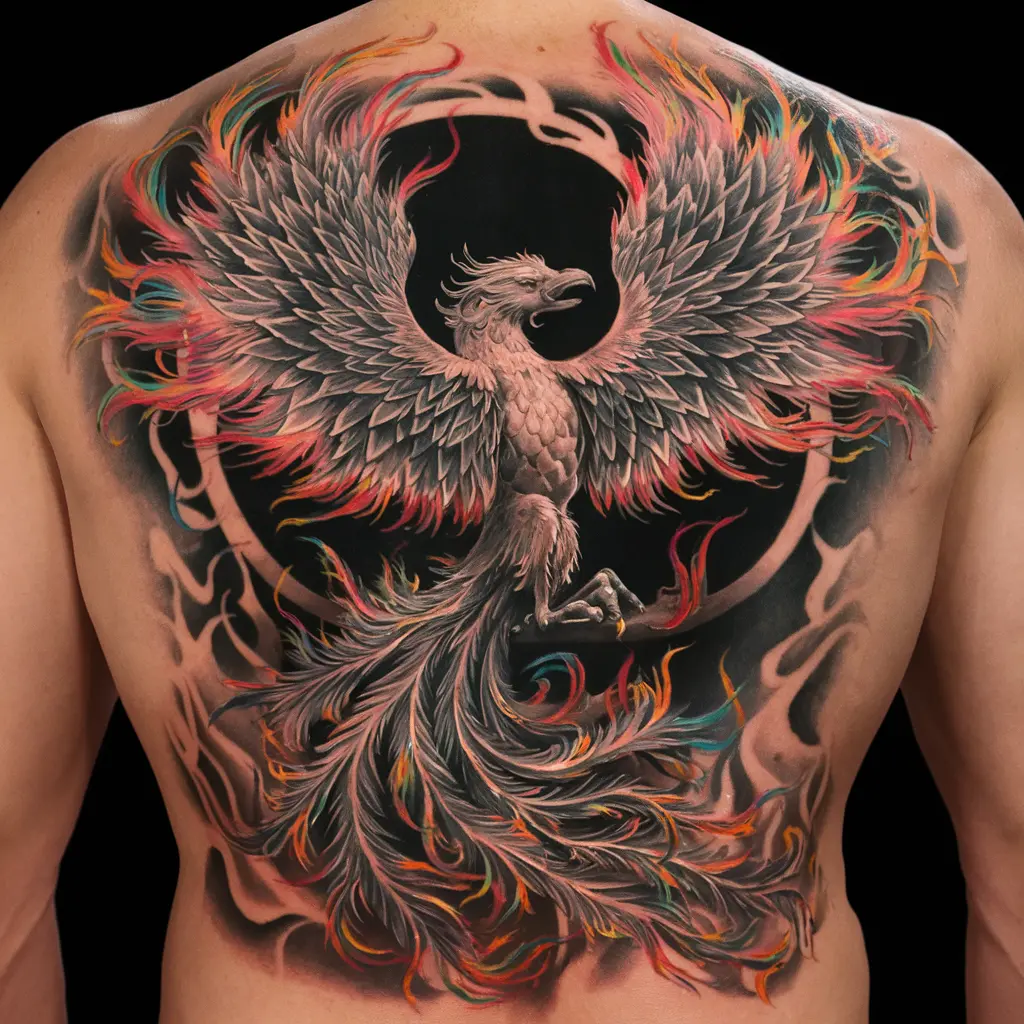
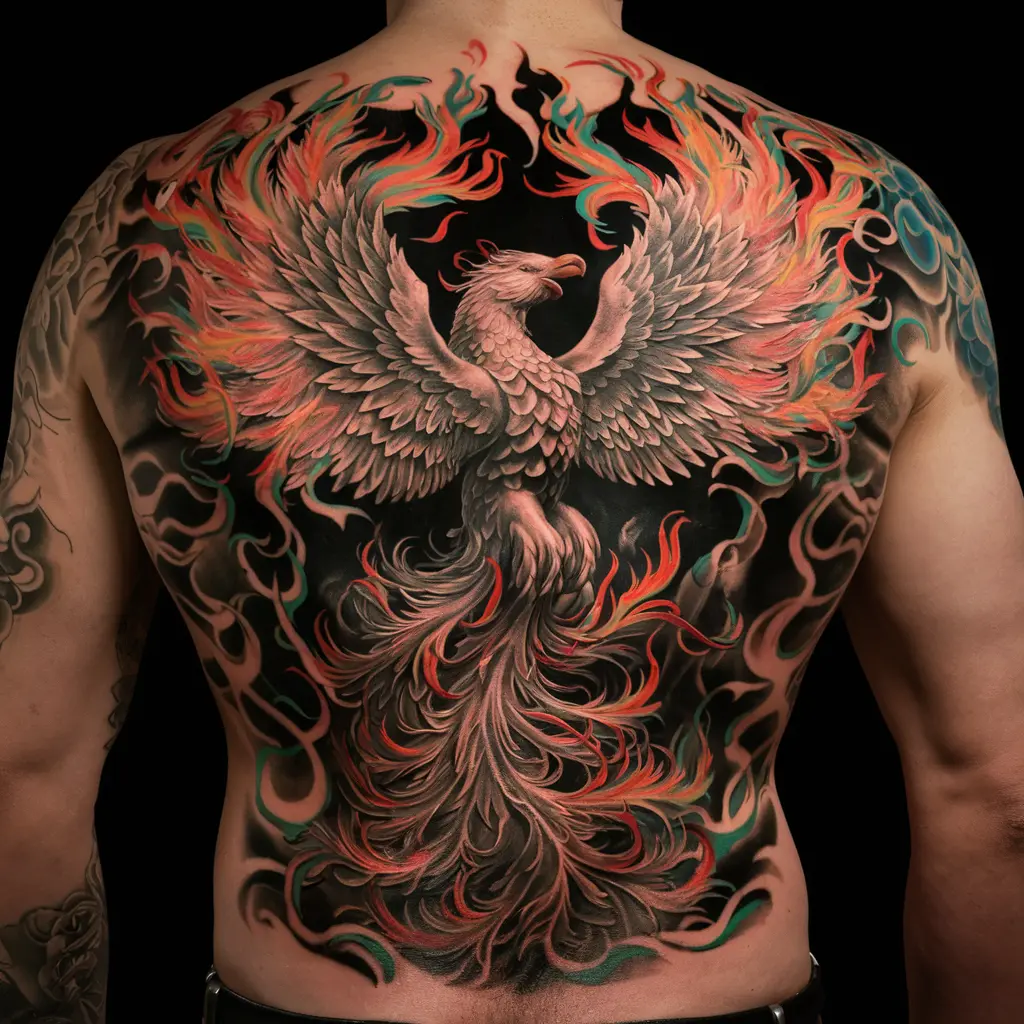
Samurai Warrior
Samurai warriors are synonymous with honor, discipline, and the Japanese code of Bushido. A tattoo of a samurai warrior can symbolize strength, bravery, and a commitment to living with integrity.
Meaning: Honor, bravery, discipline.
Placement: Upper arm, back, chest.
Why I Love It: I find samurai tattoos incredibly inspiring. The historical significance and warrior ethos behind the design make it a tattoo with powerful meaning.


Hannya Mask
The Hannya mask is a representation of a female demon often associated with anger, jealousy, and revenge. While it can represent the darker side of human emotions, it’s also believed to offer protection from evil spirits.
Meaning: Jealousy, anger, protection.
Placement: Forearm, upper arm, back.
Why I Love It: I love the balance between the mask’s intense emotion and its protective qualities. It’s a tattoo that embodies the complexity of human emotions.


Tengu Mask
Tengu are mythical bird-like creatures from Japanese folklore. Tengu masks often represent power, wisdom, and protection. They are considered fierce protectors of nature and can be an awesome tattoo design for someone seeking strength and protection.
Meaning: Power, wisdom, protection.
Placement: Full sleeve, thigh, back.
Why I Love It: The mysterious and fierce nature of the Tengu mask is what draws me to this design. It’s not only visually striking but also steeped in folklore.
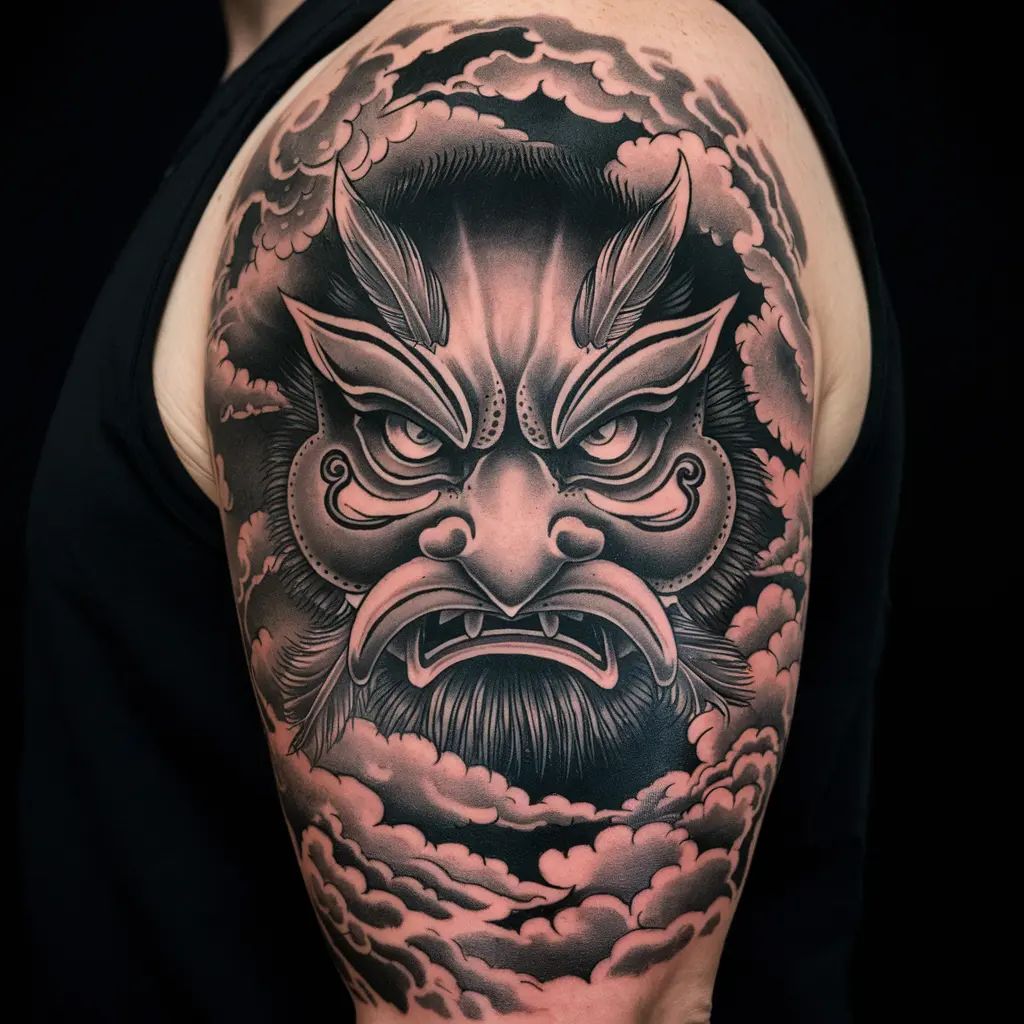
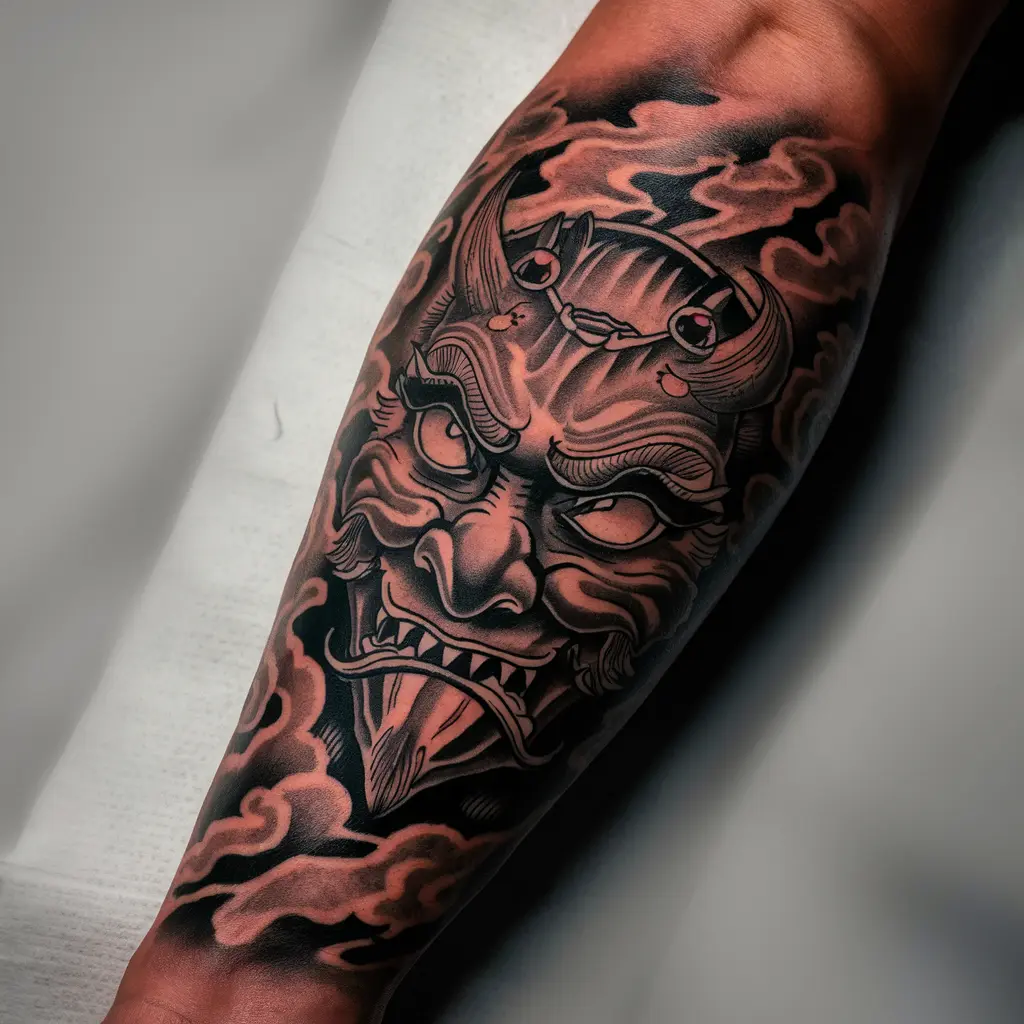
Crane in Flight
In Japanese culture, the crane is a symbol of longevity, peace, and good fortune. A crane in flight represents freedom and the desire to soar to new heights.
Meaning: Longevity, good fortune, freedom.
Placement: Upper back, shoulder, or thigh.
Why I Love It: I find the graceful flight of cranes incredibly peaceful and symbolic. This tattoo reminds me to aim high and embrace life’s beauty.


Nautical Noh Mask
A Noh mask is used in traditional Japanese theater to express emotions. In tattoo form, it often represents mystery and the exploration of human nature. A nautical Noh mask design brings together the mystery of the human spirit with the symbolism of the sea.
Meaning: Mystery, exploration, human emotion.
Placement: Upper arm, chest, back.
Why I Love It: The Noh mask evokes deep feelings of emotion, and the combination with the nautical theme gives it a sense of adventure and intrigue.


conclusion
traditional Japanese tattoos are more than just beautiful designs; they carry deep symbolism and rich cultural meanings. Whether you’re drawn to the strength of a samurai, the serenity of cherry blossoms, or the resilience of a koi fish, each tattoo tells a unique story. If you’re looking for a tattoo that blends artistry with profound significance, traditional Japanese tattoos are a timeless choice that will never go out of style.